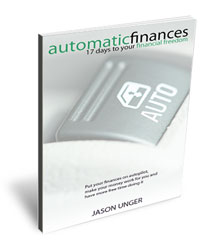
During the Presidential campaign, candidate Mitt Romney had a speech secretly recorded where he told listeners that he could not expect to get votes from the 47 percent of tax payers who do not pay federal income taxes. In the speech, Romney characterized that group of income-tax-free Americans as being “dependent on the government” and feeling “entitled to health care, to food, to housing, to you-name-it.”
Americans have often worried about people who do not support themselves working. Back in the Great Depression, after unemployment peaked at 25 percent, President Franklin Roosevelt said in a speech of October 1934, “Continued dependence upon relief induces a spiritual and moral disintegration fundamentally destructive to the national fiber. …. We must preserve not only the bodies of the unemployed from destitution but also their self-respect, their self-reliance and courage and determination. ….The Federal Government must quit this business of relief.” [quoted from The Crisis of the Old Order, 1919-1933, Arthur Schlesinger, 1957, p 267-268]
It sounds to me like Mr. Roosevelt worried that Americans getting governmental assistance would become dependent on the government whereas Mr. Romney worries that Americans getting governmental assistance are already dependent on the government. Otherwise they sound like identical statements reflecting the cultural notion that work is uplifting and makes us free and independent.
Mr. Romney’s statements generated many comments. I am sure I read only a fraction of them, but most of the comments I read assumed the 47 percent of filers who pay no income tax are low paid or unemployed people of modest means. Other comments discussed the matter in general terms without actually going to last year’s tax Form 1040 and doing some calculations.
When I did that, I found a single person with one $3,700 exemption and a $5,800 standard deduction could earn up to $9,500 in 2011 with no income tax liability. A married couple with no children, two exemptions totaling $7,400 and an $11,600 standard deduction could have $19,000 of untaxed income. If the $9,500 or $19,000 earned was wage income, then both single people and married couples would owe social security taxes.
I am not sure what share of the 47 percent include people with wages too low to tax, but many with higher incomes pay no tax because dividends and capital gains get special tax treatment not available to wage earners. In 2011, income composed of dividends and capital gains up to $88,000 for a married couple pay no federal tax at all assuming those who file take the standard deduction. For those who have itemized deductions above $11,600, untaxed dividends and capital gain can range much higher.
The exact same income earned as wages would pay $9,500 of personal income tax and $4,972 of payroll tax for a total tax of $14,472, and the payroll tax is 2 percent less than normal. Any combination of income with wages, dividends and capital gains pays less tax than the same income earned as wages.
Government programs that aid the poor and the poorly paid are now almost universally referred to as entitlements in the popular media and by politicians, but always in negative terms, as something to get rid of or cut back. Get a job; work and be independent that is the message from Mr. Roosevelt to Mr. Romney. It might work better if wage earners were entitled to equal treatment in taxation.
 About the author: Fred Siegmund covers America's jobs as part of work doing labor market analysis and projections for a client base of recruiters, trainers and counselors. Visit him at www.americanjobmarket.blogspot.com
About the author: Fred Siegmund covers America's jobs as part of work doing labor market analysis and projections for a client base of recruiters, trainers and counselors. Visit him at www.americanjobmarket.blogspot.com



